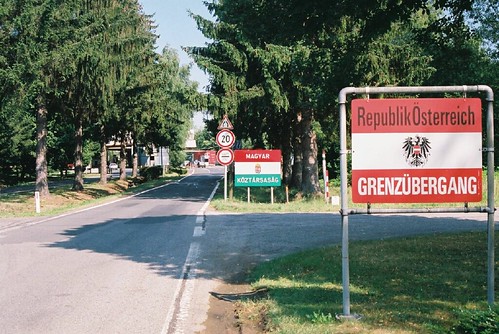To clarify - quantitative easing (QE) is buying commercial paper of banks, which is equivalent to depositing money at the bank, which is equivalent to giving the bank a loan. CP matures very quickly (1-4 weeks).
If QE doesn't cause banks to lend more, and if banks have to resort to negative interest rates to discourage the risk-averse practice of depositing excess funds at the central bank (see Japan, Dennmark), then the following are happening:
- Banks don't want to lend because:
- They are artificially constrained by government-imposed capital reserve requirements
- They are constrained by increasing % of bad loans, which are increasing their capital reserve requirements
- They are so administratively inefficient that none of them can do their core business
- They are afraid due to uncertainty about future government requirements or actions
- They see no viable loan applications
- They think inflation will devalue the future repayments they receive
- Companies don't want to borrow because:
- People aren't buying their stuff for a profitable price
- They are afraid due to uncertainty about future government requirements or actions
- They think their company will not grow in the future and/or is already shrinking
- They think deflation will make their debt painfully expensive to pay back
If QE broadens to include equities or real assets, this is exactly equivalent to government manipulation of markets or nationalization at the extreme. This is not the behavior that made the US the world's largest and strongest economy. This is not the behavior that makes other governments want to sell their
own currency and hold their money in USD. This is not the behavior that makes the USD the currency of reference on the vast majority of financial tranactions worldwide, including most oil and other commodity transactions.
Rather, this is the behavior of a failing state - Post-coup Thailand; Argentina; Ecuador; 1980s Mexico; 1970s Iran; Stallinist Russia, Mao's China.
But ... isn't the core issue really about lagging demand? If so, that is driven by:
- Consumers who overspent in the past and are paying down debt (including student debt?) instead of consuming
- Consumers who are broke and/or don't have a reliable income and/or are delaying consumption because they are still acquiring skills to build a career
- Consumers who are afraid for the future and are saving everything they can
- Consumers who are delaying purchases because they think deflation (aka industry-wide discounting) will mean cheaper prices in the future
- Fewer consumers (ahem, one-child-China?)
While I'm not going to take a position on which of the above are the primary drivers, I will say that we all keep hearing how expensive it is to have kids. Betcha didn't think that's where this was going. No debate about the cost of kids, but it's interesting to break that into component pieces:
- The "we don't want to give up our current level of consumption/lifestyle" aspect
- and the "the cost of having kids is high and increasing rapidly" aspect
- and the "we are saving for our own retirement and thus don't need a gaggle of kids to support us when we're old" aspect, which may sound silly until you look at how we took care of the elderly 150 years ago. (Hint: it wasn't an assisted living facility covered by a supplemental insurance policy).
All of the above decrease the motivation to have more than 1-2 kids, if at all. The planet is crowded, and emerging economies continue to make it more so, but they don't consume at the same levels we do (yet). Coastal China, Mexico, Philippines, and urban India all demonstrate that consumption patterns can swing from subsistence to luxury good quickly (in way less than a generation). So, despair on this front may be temporary. Or maybe not.


